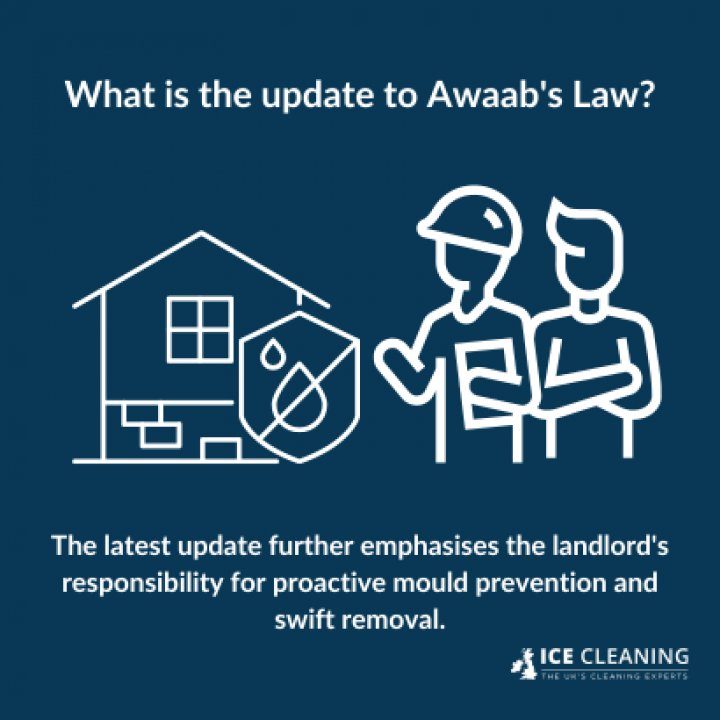Introduction
The safety and well-being of tenants in social housing have always been of utmost importance. However, tragic incidents like the death of Awaab Ishak, a two-year-old from Rochdale, have highlighted the need for more stringent regulations and swift action in addressing dangerous hazards in social housing. In response to this, the UK government has introduced Awaab’s Law, a set of proposed reforms aimed at ensuring safe homes for all residents.
Background
Awaab Ishak’s untimely demise was a result of a respiratory condition caused by extensive mold in his flat. The government recognizes that such incidents should never happen and is committed to preventing future tragedies. The Housing Secretary has launched a consultation on Awaab’s Law, which includes new time limits for social housing providers to address hazards such as damp and mold.

Proposed Reforms
The Awaab’s Law consultation proposes new legal requirements for social landlords, aiming to improve the responsiveness and accountability of housing providers. The reforms outline strict time limits for landlords to investigate hazards, start fixing the issues, and make emergency repairs. Landlords failing to comply may be taken to court and ordered to compensate tenants. Moreover, landlords will be expected to maintain clear records to enhance transparency and ensure timely rectification of housing issues.
Housing Secretary, Michael Gove, emphasizes the importance of delivering Awaab’s Law to honor the memory of Awaab Ishak and address the long-standing negligence of social landlords. He underscores the need for stronger and more robust action against those who have disregarded their responsibilities for far too long.

Support from Awaab’s Family and Campaigners
The family of Awaab Ishak has been instrumental in advocating for change. Awaab’s father, Faisal Abdullah, expresses hope that Awaab’s Law will prevent other families from experiencing the pain they went through. The proposed reforms align with the concerns of tenants, who have long been living in homes plagued by damp and mold. Kwajo Tweneboa, a social housing campaigner, acknowledges the progress made with Awaab’s Law reaching the consultation phase and highlights the importance of its enforcement to protect families from similar tragedies.

Strengthening Standards in Social Housing
While there has been consistent improvement in the quality of social homes since 2010, with a reduction in non-decent social homes from 20% to 10% last year, the government acknowledges that there is still work to be done. The Social Housing (Regulation) Act, which became law in the previous year, equips the Regulator of Social Housing and tenants with stronger powers and rights to hold rogue landlords accountable. The act also provides new enforcement powers for the regulator to penalize landlords, including issuing unlimited fines and conducting emergency repairs with only 48 hours’ notice in severe cases.

Empowering Tenants
In addition to Awaab’s Law, the government has recognized the need for tenants to better understand their rights and challenge social landlords when problems arise. A recent consultation sought the input of tenants to identify the necessary measures to enhance their understanding and empower them. The government’s direction to the Regulator of Social Housing, based on this consultation, will be published in the coming weeks.
Addressing Systemic Issues
The reforms introduced through Awaab’s Law are part of a broader effort to address systemic issues identified following the Grenfell Tower fire. The government aims to improve not only the safety and quality of social housing but also the treatment of tenants by their landlords. Monthly updates on the progress of these reforms are published, showcasing the government’s commitment to improving the quality of social housing in England.
Conclusion
Awaab’s Law represents a significant step towards ensuring safe homes for all residents of social housing. The proposed reforms, with their strict time limits and increased accountability, aim to prevent future tragedies like the one Awaab Ishak’s family endured. By empowering tenants and strengthening standards in social housing, the government is committed to creating a system that prioritizes the well-being of its citizens. The consultation period for Awaab’s Law is open, providing an opportunity for stakeholders to contribute their perspectives and help shape the future of social housing in the UK.
